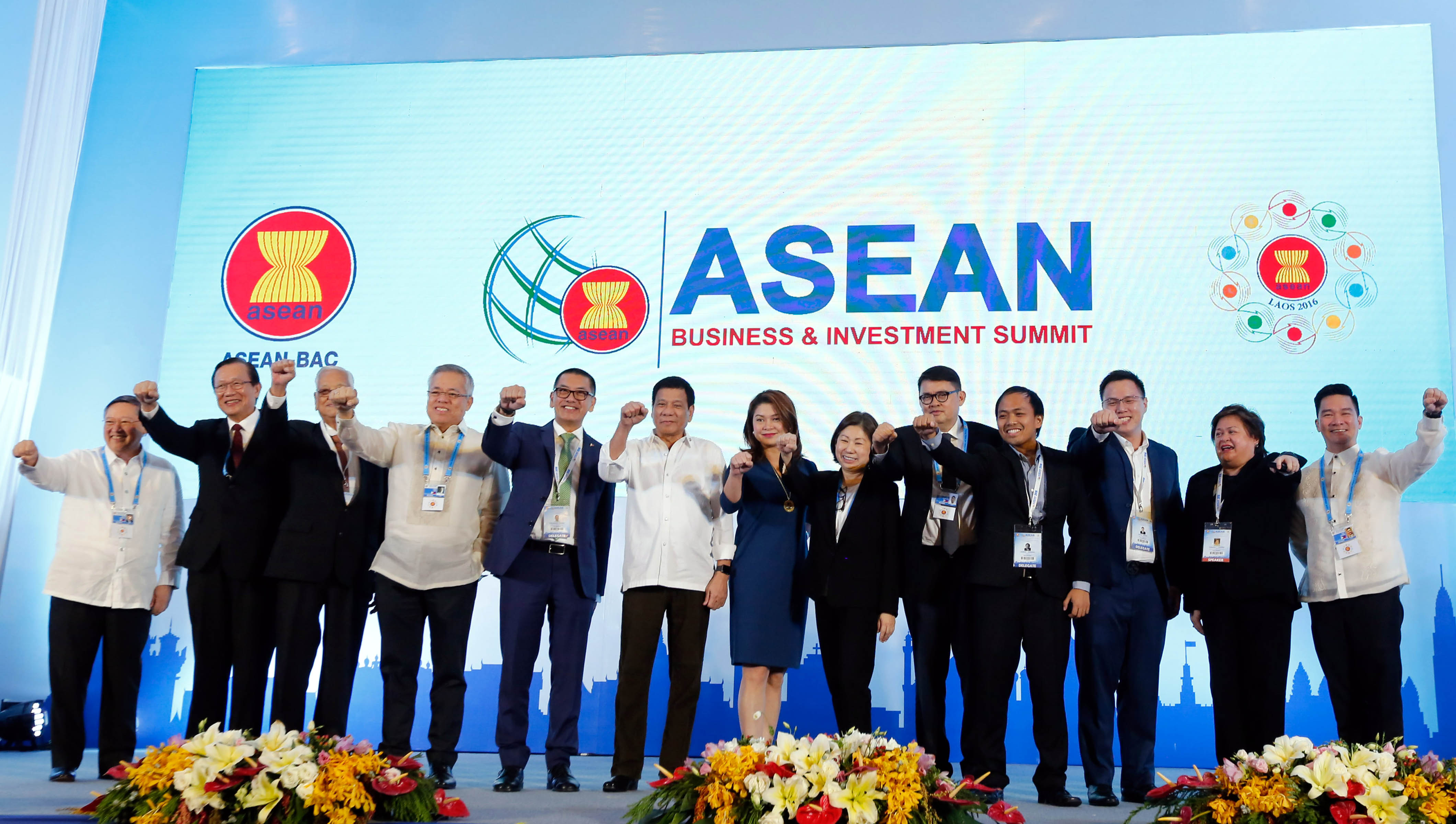
VIENTIANE – Leaders of the 10 member states of the Association of Southeast Asian Nations and their Chinese counterpart are expected to agree to concluding consultations on the outline of a legally binding code of conduct in the South China Sea in the first half of next year, a draft statement said ahead of the meeting.
According to the draft chairman’s statement, seen by Kyodo News, ASEAN leaders are expected to “welcome” China’s vision of completing “the implementation of the code of conduct’s early harvest measures by the end of 2016” and “consultation on the COC outline in the first half of 2017 under circumstances without disturbances and to fast track COC consultation.”
The statement will be issued at the end of the summit between ASEAN and China on Wednesday, a meeting that will also commemorate the 25th anniversary of dialogue relations between the two sides.
The draft reiterated the importance of the full implementation of the Declaration on the Conduct of Parties in the South China Sea, signed by China and ASEAN in 2002, and the early conclusion of ongoing talks on the framework of the code of conduct.
“We underlined the importance of maintaining peace, stability, security and freedom of navigation in, and overflight above, the South China Sea,” the draft said.
The South China Sea has seen tensions rise in recent months and years between China and a number of other countries which claim parts of the sea.
China has proceeded with an aggressive program of land reclamation on disputed islands and reefs in the sea, on which it has also been building military facilities.
Discussions on the COC between China and ASEAN – four of whose member states are claimants to parts of the South China Sea – have been taking place for over a decade, with little to no progress in creating concrete results on the biding set of rules.
ASEAN and China also plan to show progress in their cooperation by issuing official guidelines for hot-line communications between senior Chinese and ASEAN officials.
A separate joint statement on the application of the Code for Unplanned Encounters at Sea in the South China Sea will also be adopted during a sideline meeting between ASEAN and China, with the aim of ensuring maritime safety in the disputed sea.
The Permanent Court of Arbitration in The Hague issued a ruling on July 12, invalidating China’s “nine-dash line,” through which Beijing claims almost all of the South China Sea.
The Philippines filed the arbitration case against China in January 2013 to seek clarification of its maritime entitlements in the South China Sea under the 1982 United Nations Convention on the Law of the Sea, following China’s aggressive assertion of its claims there. Both the Philippines and China are signatories to the convention.
Three other ASEAN member states – Malaysia, Vietnam and Brunei – and Taiwan also have overlapping claims in the South China Sea.
In another part of the statement, both sides will stress the intensification of negotiations on the Regional Comprehensive Economic Partnership, Asia’s most ambitious trade agreement.
“Noting the immense potential of the RCEP to foster global and regional trade and growth, we urged our experts to redouble efforts toward achieving a modern, comprehensive, high-quality and mutually beneficial economic partnership agreement,” the draft statement said.
RCEP leaders from 16 countries – the 10 ASEAN states and its six dialogue partners – will adopt a statement on the RCEP negotiations at a ceremony after the East Asia Summit, which they will attend on Thursday.
ASEAN groups Brunei, Cambodia, Indonesia, Laos, Malaysia, Myanmar, the Philippines, Singapore, Thailand, and Vietnam.